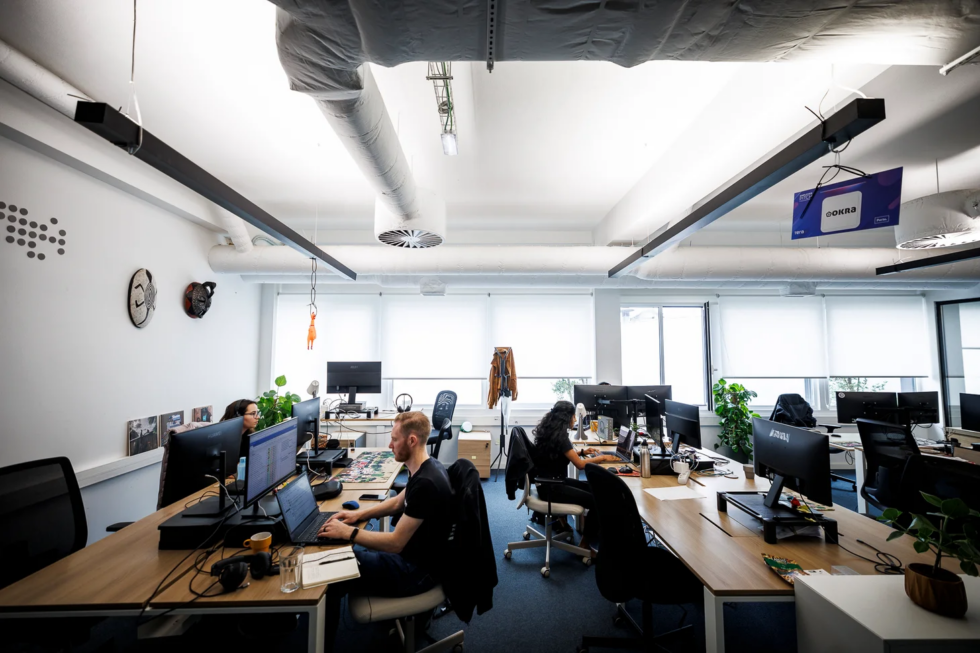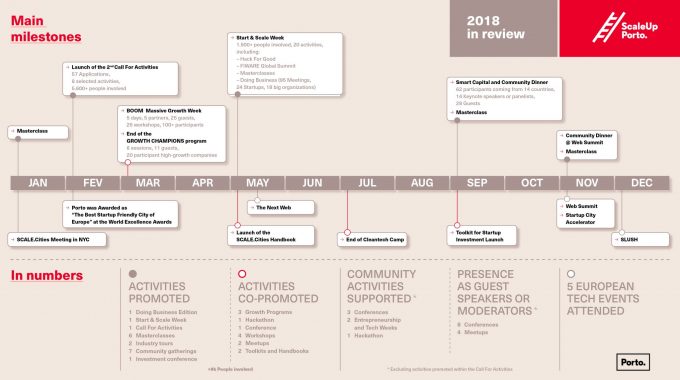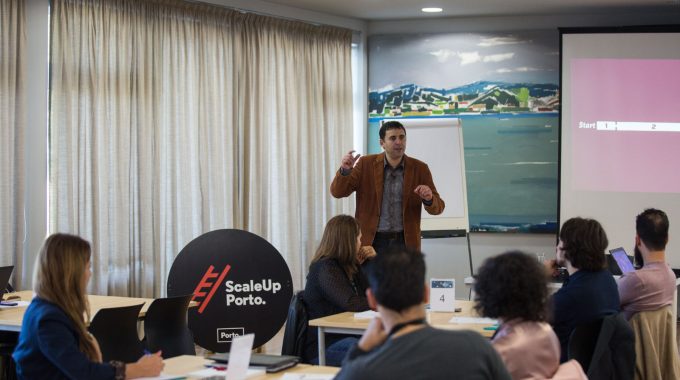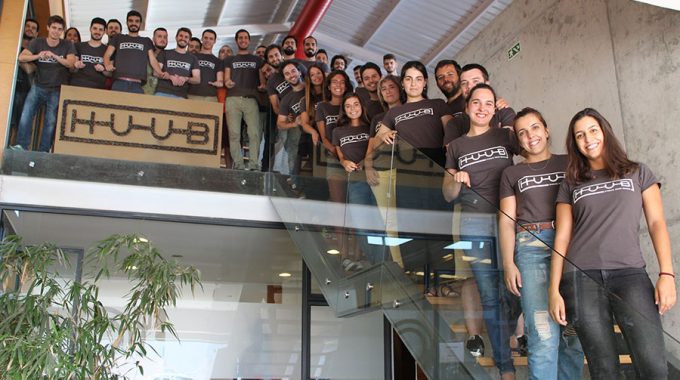Nearly 700 million people around the world lack access to electricity. In Porto, a team has found a solution. Okra, originally from Australia, developed its first technology in Cambodia and found in the ‘Invicta‘ the ideal energy to bring electricity to families in the most remote areas of Nigeria, Haiti, and the Philippines. Today, seeing that the code they created is allowing thousands of families to cook in a cleaner way, for example, they feel their mission to ‘bring power to the people’* is increasingly shedding light on a goal that still encompasses millions.
Nithya Menon, the production manager, explains that the company’s idea might be described as the best of both worlds: domestic solar systems and mini-grids. The former, ‘used for small amounts of electricity, such as charging a mobile phone or lighting a lamp, are cheap and very flexible, but do not correspond to effective electrification’.
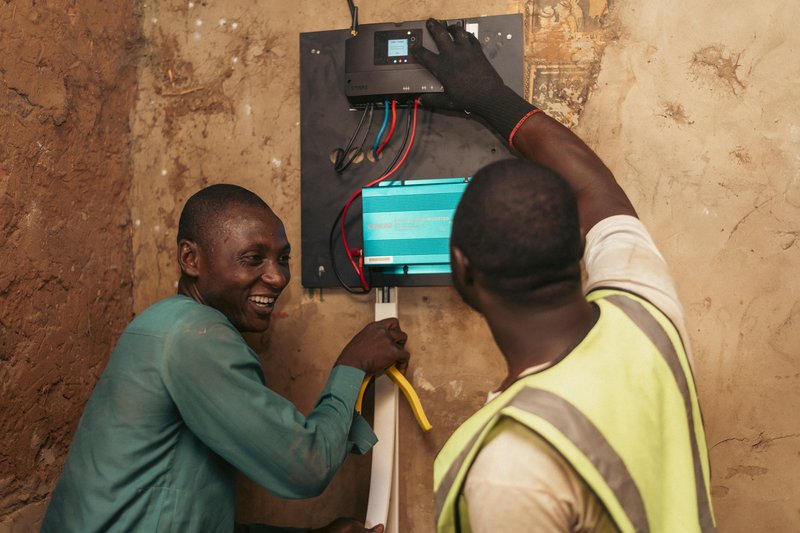
The latter, where ‘a central point generates and installs all the energy, as we have in our infrastructures’, can ‘provide the main energy to operate all equipment’, but the array of generators, batteries and cables is, according to Nithya, ‘a major engineering challenge, financially unsustainable, and therefore not applicable to what these communities need’.
The solution lies in Okra’s meshgrid technology, which ‘installs a box in any house’ to produce energy from the sun and distributes it among the various boxes – or houses – that make up the grid. ‘If there’s more energy in one location, it can be transferred to another. That’s the balancing effect of the grid, without each one producing in isolation’, Nithya explains.
With more energy available, ‘houses can use a fridge, prepare a meal, use energy for agriculture’, all simultaneously and in a ‘green’ manner. An energy community that operates with the power of the neighbourhood.
We don’t want to come from afar into a community claiming to solve all their problems’
‘Originally, the technology was created purely for households, but then we saw there was a demand for other places such as schools, a production centre, something that required a larger device’, Nithya Menon says.
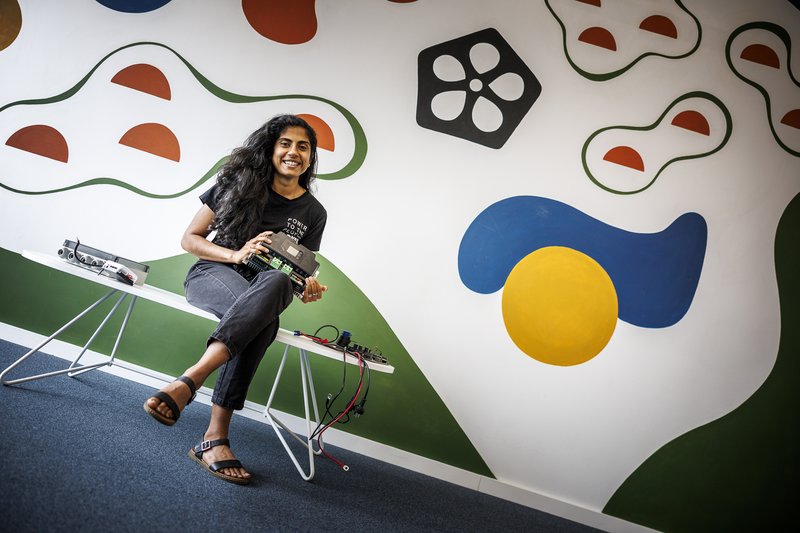
And Okra came forward with an answer. However, ‘we don’t want to come from afar into a community claiming to solve all their problems’, the company’s manager added.
For this reason, our presence in four countries is carried out through local clients and partners, ‘who understand the needs of the communities’ and provide maintenance, estimating that ‘overall, between 20,000 and 25,000 people now have access to electricity’.
It feels like every line of code you write is changing many lives’
Nithya Menon admits that ‘as an engineer, being in the office in Phnom Penh and driving three hours to a rural community, installing the product and seeing people with lights on and with fans working thanks to it, was a very powerful experience’.
‘It feels like every line of code you write is changing many lives’, she emphasises, highlighting the impact of knowing that so many ‘now have access to electricity, can stop spending money on wood, indoor smoke is reduced, they cook cleanly, women have more time and capacity to engage in other activities’.
‘These communities have electricity because of what we do every day, and that’s very special’, the technology development manager adds.
We like to have fun, we are chaotic, not overly structured, we realised we could be happy here, make this our home’.
From Cambodia to Haiti, combining the best of these two worlds with an eye on the African market. This is how Porto fits into Okra’s trajectory, with a story of post-lockdown in between.
Nithya mentions that the team thought ‘of places where culture was in sync with our company, where we could attract both national and international talent, strategic locations to reach our markets, a good place to grow, safe, with good connections, and affordable in terms of rent’.
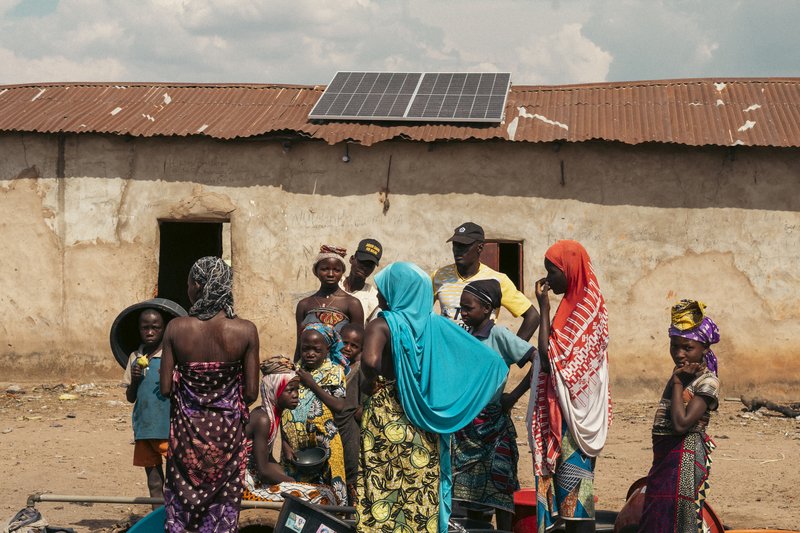
The first meeting with all involved after the lockdown in 2021 was in Portugal, which ‘totally matched our energy’, Okra’s manager admits. ‘We like to have fun, we are chaotic, not overly structured, we realised we could be happy here, make this our home’, she adds.
The proximity to Portuguese-speaking African countries also played a role, of course, and ‘Mozambique will probably be our next market’, Nithya reveals. Two years ago there were six people; now, Okra’s office at Founders Founders
has grown to about twenty, also reflecting the ‘ecosystem of hardware companies we can learn from and build a common space with’, like the one they found in Campanhã, but also throughout the territory.
‘Entering the climate and renewable energy scene in Portugal, seeing how clean technologies are being implemented’, Okra is working to ‘deepen institutional relations in that regard’, guided by the assumed mission of ‘wanting to be an active party in this field’.
We always seem to find the right talent for each need that arises’
Besides witnessing the ‘growing technological scene’ in the city, Nithya Menon never ceases to be amazed by the talent. ‘Each time we have a new vacancy, we wonder if there will even be someone who can fill it because we choose such unique characteristics’, she confesses, admitting that ‘we always seem to find the right talent for each need that arises. It has been impressive and exciting to discover them’.
A puzzle that is being built one light bulb, one battery, one house, and one community at a time. In a world where the ‘power’ of energy is still a utopia for millions.
*’power’ in the literal translation of ‘power’, which means ‘energy’ in Portuguese
Source: Porto.
